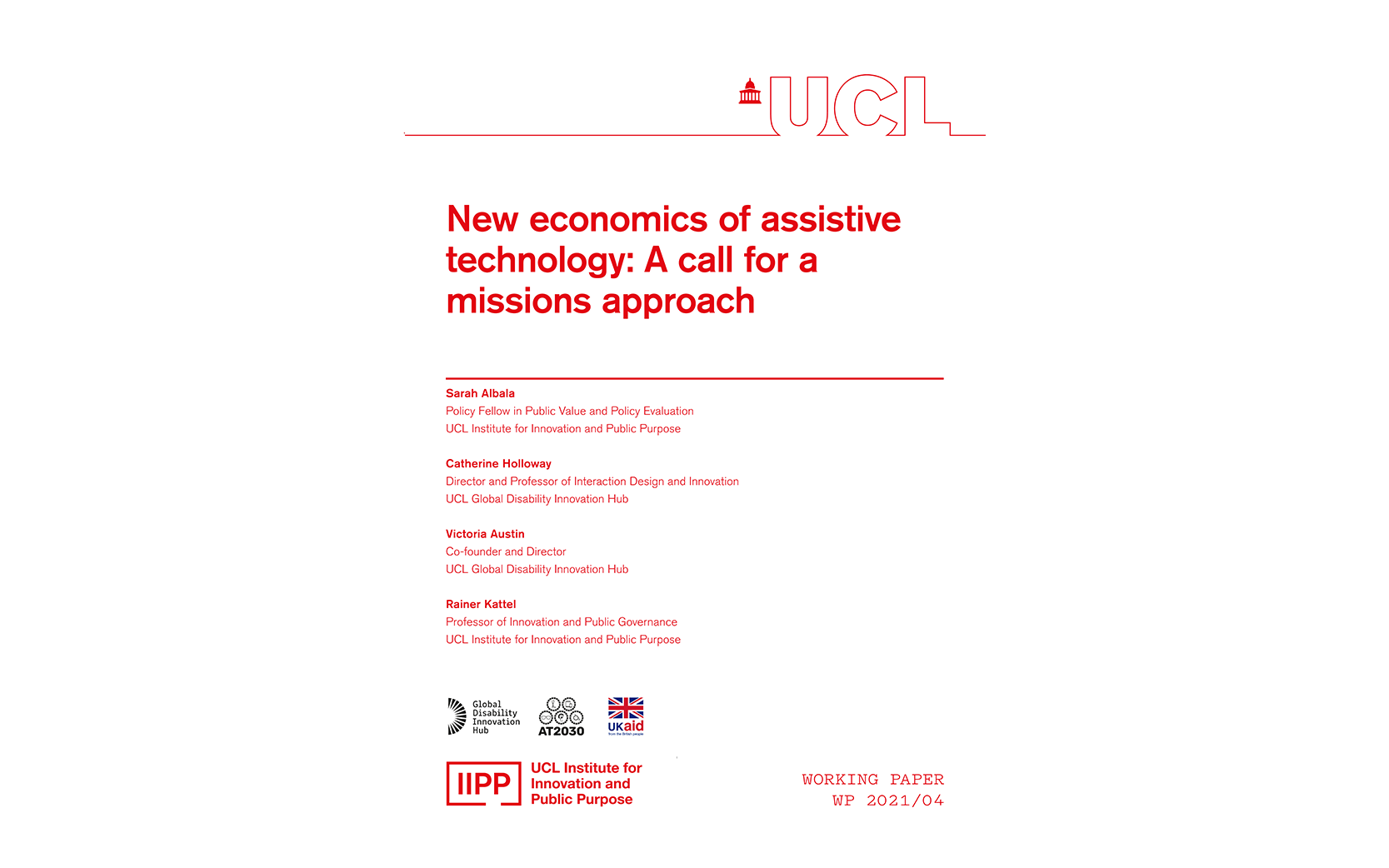New economics of assistive technology: A call for a missions approach
This paper proposes a public sector-led, mission-oriented approach in order to unleash the full potential of assistive technology value and meet user needs.

22 January 2021
UCL Institute for Innovation and Public Purpose (IIPP) Working Paper Series: IIPP WP 2021/04
Authors
- Sarah Albala | Policy Fellow in Public Value and Policy Evaluation, UCL Institute for Innovation and Public Purpose
- Catherine Holloway | Director and Professor of Interaction Design and Innovation, UCL Global Disability Innovation Hub
- Victoria Austin | Co-founder and Director, UCL Global Disability Innovation Hub
- Rainer Kattel | Professor of Innovation and Public Governance, UCL Institute for Innovation and Public Purpose
Reference
Albala, S., Holloway, C., Austin, V. and Kattel, R. (2021). New economics of assistive technology: A call for a missions approach. UCL Institute for Innovation and Public Purpose, Working Paper Series (IIPP WP 2021/04). Available at: https://www.ucl.ac.uk/bartlett/public-purpose/wp2021-04
Abstract
An estimated 90% of the one billion people who require a particular assistive product (AP) do not have access to that device. The lack of an AP, a device which helps to enable human life, is especially poignant within low- and middle-income countries. Issues that affect access to appropriate AP are currently seen through the lens of supply and demand-side failures. Actions and policies that try to address access to assistive technology (AT) through a limited market failure perspective will not be able to deliver AT in the comprehensive way necessary to meet need, while ensuring the AT is user-appropriate and of high quality. In order to meet user need, new thinking is needed that recognises the value of AT by considering how the AT innovation ecosystem creates meaningful economic and social value. In order to unleash the full potential of AT value, this paper proposes a public sector-led, mission-oriented approach. While setting the mission and the directionality is the role of government, NGOs, industry, AT users and the charity sector are able to drive forward the agenda of AT access through their own essential and complementary roles. A mission-oriented approach will use tools such as market-shaping and stakeholder co-creation to set an agenda by which AT innovation and access can be positioned as a meaningful step in tackling societal challenges. Through a missions approach the value of AT will be properly captured and society can come closer to addressing issues surrounding healthy ageing, enabling human capability and equity.
 Close
Close

